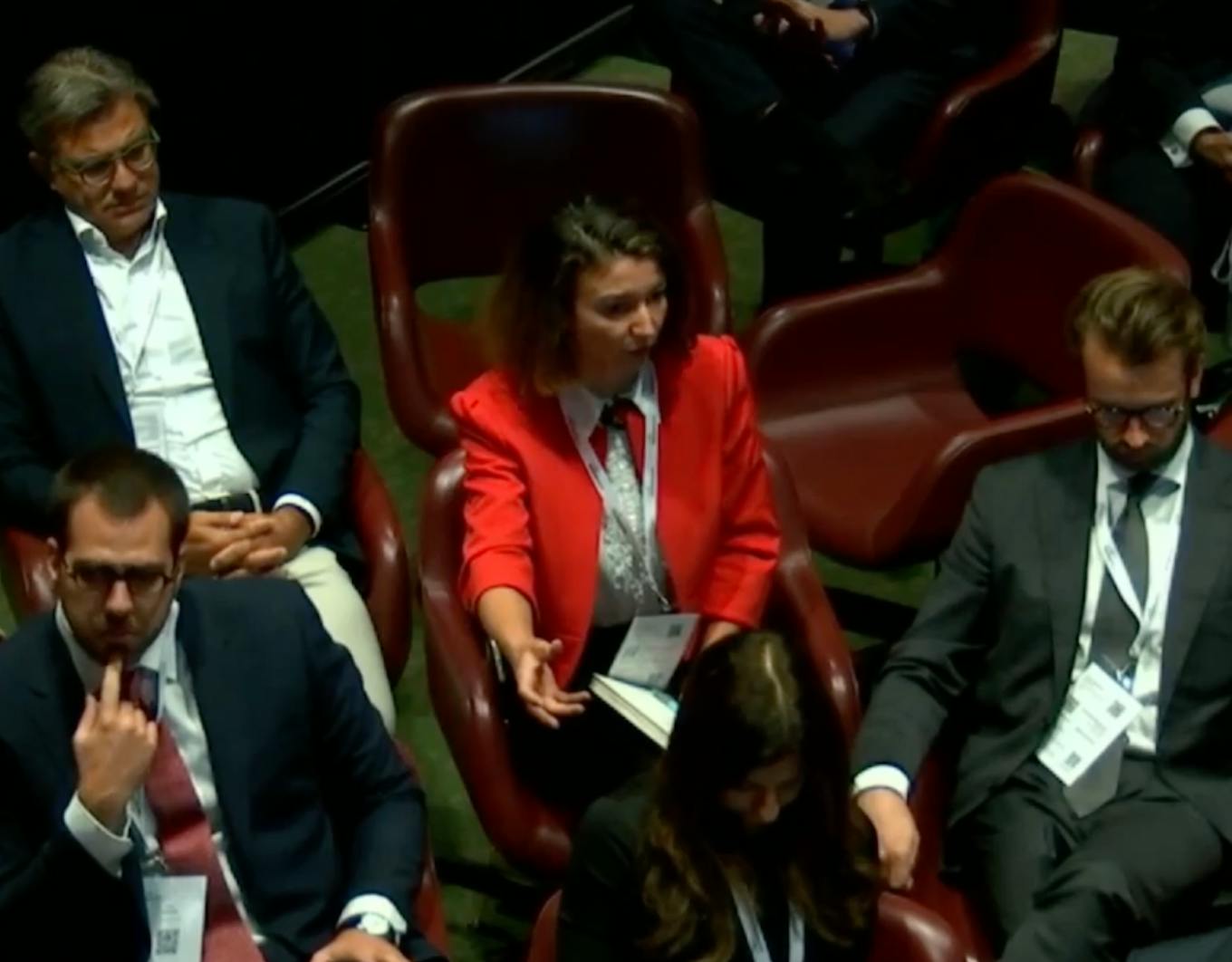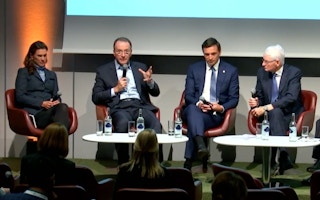The chief executive of Nestlé has said that responsibility for collecting and managing plastic waste should not be “thrown in the lap” of corporations, and producer responsibility laws are already squeezing consumer goods firms to pay for plastic pollution.
To continue reading, subscribe to Eco‑Business.
There's something for everyone. We offer a range of subscription plans.
- Access our stories and receive our Insights Weekly newsletter with the free EB Member plan.
- Unlock unlimited access to our content and archive with EB Circle.
- Publish your content with EB Premium.
Speaking at an event hosted by investment firm Lombard Odier on Wednesday, Nestlé CEO Mark Schneider was challenged by a former government official on how actors “producing the waste” would have to respond to a legally-binding global treaty on plastic pollution, which is to be negotiated later this year.
A United Nations resolution to end plastic pollution has been backed by 170 countries and 80 companies, including Nestlé, the world’s largest packaged goods company which makes brands including Milo, KitKat, Nescafe and Milkybar.

A former official from a Balkan nation asks the CEO of Nestlé a question at the Lombard Odier event on plastics on Wednesday 5 October. Image: Building Bridges
A delegate who identified herself as from a “small Balkan country” said the problem of collecting plastic waste was left to “struggling” local governments with limited resources, and consumer goods companies should pick up the tab for ensuring their products do not pollute environment.
“Those who have the money [to address the plastic waste problem] and who are polluting are not local governments or national governments or consumers, they are companies such as Nestlé,” she said.
She noted that her country was struggling with an acute pollution problem exacerbated by plastics.
“
To simply point at one actor in the system and say, ‘Thou shalt solve the problem’ will not get us very far.
Mark Schneider, CEO, Nestlé
“The budget [for managing plastic waste] of my entire country, let alone the local government in each city, is nothing compared to Nestlé’s budget.”
She suggested that consumer good firms like Nestlé should pay for waste collection points wherever their products are sold.
Schneider said extended producer responsibility (EPR) laws already hold companies responsible for plastic waste.
EPR laws make producers responsible for some of the cost of managing post-consumer waste. A debate over how to implement EPR laws is expected to be central to the global plastics treaty.
“When you check out the reality of what EPR fees are today, a lot emphasis is placed on the producer,” Schneider said.
EPR laws currently exist mainly in developed countries, including Japan and South Korea, but have a limited presence in the Global South, where plastic waste is having the biggest impact on natural ecosystems.
Waste collection should not solely be the responsibility of the private sector, but a shared responsibility with governments, he said. “It shouldn’t have to be us all the time.”
Schneider said the plastic treaty would “level the playing field” for how governments share the cost of cleaning up plastic waste with producer companies.
Nestlé is involved in cleap-up operations in 230 countries around the world, Schneider said. “It shouldn’t be just thrown in our lap. Everyone has to work together,” he said.
“To simply point at one actor in the system and say, ‘Thou shalt solve the problem’ will not get us very far,” Schneider said.
The Swiss multinational – which uses about 1 million tonnes of plastic for packaging a year – has committed to use less virgin plastic and more recycled material in its packaging in response to the plastic crisis.
Nestlé consistently ranks among the top plastic polluters in brand audits conducted globally, along with other consumer goods firms such as Coca-Cola, Pepsi, Procter & Gamble and Unilever.










